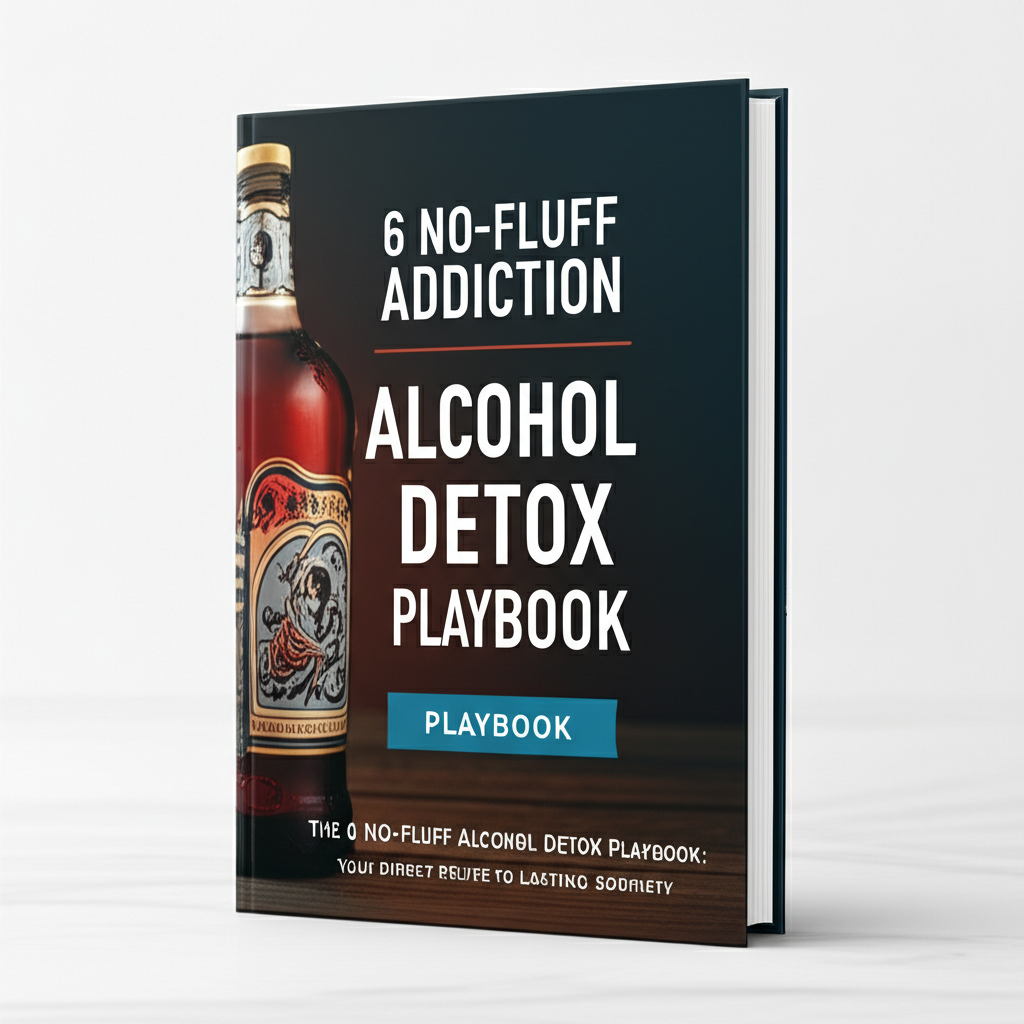The desire to break free from alcohol’s grip is a powerful one, often accompanied by an urgent longing for a "quick fix." The internet is awash with promises of rapid detox, but the reality of safely and effectively withdrawing from alcohol is far more nuanced. While there’s no magic bullet for addiction, understanding the frameworks or "templates" for alcohol detoxification can empower individuals to seek the right help and make informed decisions about their journey to sobriety.
This article will explore three distinct alcohol detox templates, each tailored to different levels of alcohol dependence and withdrawal severity. It’s crucial to understand from the outset that "quick" in this context refers to the initial phase of physical detoxification, not a shortcut around the necessary medical supervision or the deeper work of long-term recovery. For most, professional guidance is not just recommended, but essential for safety and success.
The Critical Disclaimer: Why "Quick" Doesn’t Mean "Easy" or "Risk-Free"
Before diving into any template, it’s paramount to address the inherent dangers of alcohol withdrawal. Alcohol dependence alters brain chemistry, and abruptly stopping can trigger a cascade of severe, even life-threatening, symptoms. The idea of a "quick home detox" without medical oversight is often a perilous gamble.
The Dangers of Unsupervised Detox
When a person heavily dependent on alcohol stops drinking, their central nervous system, which has adapted to the constant presence of a depressant, goes into overdrive. This can lead to:
- Seizures: One of the most dangerous complications, potentially leading to brain damage or death.
- Delirium Tremens (DTs): A severe form of withdrawal characterized by profound confusion, rapid heart rate, high blood pressure, fever, hallucinations, and intense tremors. DTs are a medical emergency with a significant mortality rate if untreated.
- Severe Dehydration and Electrolyte Imbalances: Vomiting, sweating, and poor fluid intake can lead to dangerous imbalances.
- Cardiovascular Complications: Irregular heartbeats, heart attack, or stroke due to the stress on the body.
- Psychological Distress: Extreme anxiety, panic attacks, paranoia, and suicidal ideation.
When to NEVER Detox Alone
You should never attempt to detox from alcohol at home without medical supervision if you:
- Have a history of severe alcohol withdrawal symptoms (e.g., seizures, DTs).
- Drink heavily and regularly for an extended period (e.g., daily heavy drinking for months or years).
- Have co-occurring mental health conditions (e.g., severe anxiety, depression, bipolar disorder).
- Have other significant medical conditions (e.g., heart disease, liver disease, diabetes).
- Are pregnant.
- Live alone or lack a reliable, sober support system.
Always consult a doctor or addiction specialist before attempting any form of alcohol detox. They can assess your individual risk factors and recommend the safest and most effective path forward.
Understanding Alcohol Withdrawal: The Body’s Response
To appreciate the need for different detox templates, it helps to understand what’s happening physiologically.
The Science Behind Withdrawal
Alcohol acts as a depressant on the central nervous system, enhancing the effects of GABA (a calming neurotransmitter) and inhibiting glutamate (an excitatory neurotransmitter). Over time, the brain adapts by reducing GABA receptors and increasing glutamate activity to maintain balance. When alcohol is removed, the brain’s "brakes" (GABA) are weak, and its "accelerator" (glutamate) is overactive, leading to hyperexcitability and the symptoms of withdrawal.
Common Withdrawal Symptoms
Symptoms vary widely in intensity and type:
- Mild Symptoms:
- Headache
- Nausea and vomiting
- Tremors (shaky hands)
- Sweating
- Anxiety and irritability
- Insomnia
- Moderate Symptoms:
- Increased heart rate and blood pressure
- More pronounced tremors
- Moderate to severe anxiety and agitation
- Disorientation
- Hallucinations (auditory, visual, or tactile, typically transient)
- Severe Symptoms:
- Seizures
- Delirium Tremens (DTs)
- Profound confusion and disorientation
- High fever
- Extreme agitation
The Typical Withdrawal Timeline (General Overview)
- 6-12 Hours: Mild symptoms begin (headache, nausea, anxiety, tremors).
- 12-24 Hours: More pronounced symptoms, potentially including hallucinations.
- 24-48 Hours: Seizures may occur during this window.
- 48-72 Hours: Delirium Tremens (DTs) can set in, peaking around day 3-5.
- 5-7 Days: Acute physical withdrawal symptoms generally subside, though psychological symptoms (anxiety, insomnia, cravings) can persist for weeks or months (Post-Acute Withdrawal Syndrome – PAWS).
Now, let’s explore the three detox templates, emphasizing that even the "mild" template requires careful consideration and medical consultation.
Template 1: The "Mild Symptom" Home Support Approach (with Strict Medical Clearance)
This template is suitable only for individuals with very mild alcohol dependence, a short history of heavy drinking, and no prior history of severe withdrawal symptoms. It absolutely requires prior medical consultation and a detailed safety plan.
Is This Template Right for You? (Strict Criteria)
This template is only viable if:
- You have been medically assessed and cleared by a doctor who agrees that home detox is safe for your specific situation.
- Your drinking history is relatively short and not extremely heavy (e.g., a few weeks of increased consumption, not years of chronic heavy drinking).
- You have no underlying health conditions that could be exacerbated by withdrawal.
- You have a sober, trusted individual who can stay with you 24/7 throughout the acute withdrawal phase and can recognize and respond to emergency situations.
- You have immediate access to emergency medical services.
Core Components of Home Detox (Under Medical Guidance)
- Medical Consultation & Safety Plan:
- A doctor must confirm your suitability and provide clear instructions.
- Have emergency contact numbers readily available (doctor, emergency services).
- Discuss potential medications for symptom management (e.g., anti-nausea medication, although benzodiazepines are typically reserved for supervised settings).
- Constant Supervision:
- A sober friend or family member must be present around the clock. Their role is to provide emotional support, ensure adherence to the plan, and monitor for any worsening symptoms that would necessitate immediate medical intervention.
- Hydration & Nutrition:
- Fluids: Drink plenty of water, electrolyte-rich beverages (sports drinks, coconut water, oral rehydration solutions). Avoid caffeine and sugary sodas.
- Food: Focus on light, easily digestible foods like broth, crackers, toast, bananas, and oatmeal. Small, frequent meals are better than large ones.
- Rest & Comfort:
- Create a quiet, comfortable environment conducive to rest.
- Have blankets, pillows, and distraction materials (books, calming music) ready.
- Expect sleep disturbances and try to rest whenever possible.
- Emotional Support:
- The supervising individual should offer encouragement and understanding.
- Be prepared for mood swings, anxiety, and irritability.
- Emergency Protocol:
- Clearly define what symptoms would trigger a call to emergency services (e.g., seizures, severe confusion, persistent high fever, extreme agitation, uncontrolled vomiting).
Example Scenario: Sarah, 28, has been drinking a bottle of wine nightly for the past two months due to stress. She has no history of severe withdrawal. After consulting her doctor, who deemed her low-risk, her sister stays with her for three days. Sarah experiences headaches, nausea, and anxiety, but these are manageable with hydration, light food, and her sister’s support. Her doctor checks in daily via phone.
Template 2: The "Moderate Symptom" Medically Supervised Outpatient Detox
This is a more common and safer option for individuals with moderate alcohol dependence who experience noticeable, but not life-threatening, withdrawal symptoms. It provides crucial medical oversight while allowing the individual to remain at home.
Who Benefits from Outpatient Care?
- Individuals with a history of regular, moderate to heavy drinking (e.g., daily heavy drinking for several months).
- Those who have experienced mild to moderate withdrawal symptoms in the past (e.g., tremors, profuse sweating, anxiety, insomnia).
- Individuals with a stable home environment and a reliable support system.
- Those without severe co-occurring medical or mental health conditions that would necessitate 24/7 care.
How Outpatient Detox Works
- Comprehensive Medical Assessment:
- An addiction physician or clinic conducts a thorough evaluation of your medical history, drinking patterns, and mental health.
- They will determine if outpatient detox is safe for you and create a personalized plan.
- Prescribed Medications:
- The cornerstone of outpatient detox is medication management, primarily using benzodiazepines (e.g., Librium, Valium, Ativan). These medications help to:
- Calm the overactive nervous system.
- Reduce anxiety and agitation.
- Prevent seizures and DTs.
- They are prescribed on a tapering schedule, meaning the dose is gradually reduced over several days to prevent dependence and minimize withdrawal.
- Other medications might be prescribed for specific symptoms (e.g., anti-nausea, sleep aids).
- The cornerstone of outpatient detox is medication management, primarily using benzodiazepines (e.g., Librium, Valium, Ativan). These medications help to:
- Regular Medical Check-ins:
- You will have daily or near-daily appointments at the clinic for vital sign monitoring, symptom assessment, and medication adjustments.
- Medical staff will look for any signs of complications and provide immediate intervention if needed.
- Support and Education:
- Outpatient programs often include counseling, group therapy, and education about addiction and recovery.
- They help connect you with resources for ongoing support after detox.
- Contingency Planning:
- A clear plan is established for what to do if symptoms worsen or if a medical emergency arises.
Example Scenario: David, 45, has been drinking 6-8 beers every evening for the past year. When he tries to stop, he experiences significant shakes, sweating, and severe anxiety. He checks into an outpatient detox clinic. He receives a prescription for Librium, which he takes as directed, and attends daily check-ins at the clinic for five days. His symptoms are significantly reduced, and he feels safe under medical supervision.
Template 3: The "Severe Symptom" Inpatient Medical Detoxification
This is the safest and most appropriate template for individuals with severe alcohol dependence, a history of dangerous withdrawal, or complex medical/mental health issues. Inpatient detox provides 24/7 medical supervision and a controlled environment.
The Necessity of 24/7 Care
For severe cases, the risks associated with withdrawal are too high to manage in any other setting. Inpatient facilities offer:
- Constant Medical Monitoring: Nurses and doctors are available around the clock to monitor vital signs, administer medications, and respond to emergencies.
- Immediate Intervention: Rapid response to seizures, DTs, or other life-threatening complications.
- Controlled Environment: A safe space free from alcohol and triggers, allowing the individual to focus solely on detoxification.
- Integrated Care: Ability to manage co-occurring medical conditions (e.g., diabetes, heart issues) or mental health disorders (e.g., severe depression, psychosis) simultaneously.
What to Expect in Inpatient Detox
- Admission & Comprehensive Assessment:
- Upon arrival, a full medical and psychological evaluation is conducted.
- Blood tests are often done to check liver function, electrolyte levels, and nutritional deficiencies.
- Aggressive Medication Management:
- Benzodiazepines are typically administered on a fixed-schedule or symptom-triggered basis, often in higher doses initially, to prevent severe withdrawal.
- IV fluids may be given for hydration and to correct electrolyte imbalances.
- Vitamins (especially B vitamins like Thiamine) are crucial to prevent neurological complications (e.g., Wernicke-Korsakoff syndrome).
- Other medications may be used to manage specific symptoms (e.g., anti-emetics for nausea, blood pressure medication).
- Nutritional Support:
- A healthy, balanced diet is provided, often supplemented with vitamins and minerals.
- Therapeutic Support:
- While the primary focus is physical stabilization, many inpatient programs begin introducing individual counseling, group therapy, and educational sessions once the patient is stable enough.
- Discharge Planning:
- A critical component is developing a comprehensive aftercare plan for continued treatment, which might include residential treatment, outpatient programs, or sober living arrangements.
Example Scenario: Maria, 55, has been drinking heavily for 20 years and has a history of seizures during past attempts to quit. She is admitted to an inpatient medical detox facility. For the first few days, she receives continuous IV fluids, regular doses of benzodiazepines, and vitamin supplements. Her vital signs are closely monitored. She experiences some tremors and anxiety, but no seizures or DTs, thanks to the constant medical care. After 5-7 days, she is medically stable and transitions to a residential treatment program.
Essential Elements for ANY Detox Plan
Regardless of which template applies to you, certain elements are universal for a safer and more effective detox.
- Prioritize Medical Consultation: This cannot be stressed enough. A doctor’s assessment is the non-negotiable first step.
- Hydration & Nutrition: Support your body through the stress of withdrawal.
- A Robust Support System: Whether it’s a trusted individual at home, a medical team, or both, having support is vital.
- A Plan for What Comes Next: Detox is just the beginning. Planning for aftercare is crucial for long-term sobriety.
- Patience & Self-Compassion: Withdrawal is uncomfortable. Be kind to yourself, acknowledge the difficulty, and focus on one step at a time.
Beyond Detox: The Path to Lasting Sobriety
It’s imperative to understand that detox is not recovery; it is merely the critical first step. Detoxification addresses the physical dependence, clearing the alcohol from your system and managing withdrawal symptoms. However, it does not address the underlying psychological, emotional, and behavioral components of addiction.
The Importance of Aftercare
Without a robust aftercare plan, the risk of relapse after detox is incredibly high. Addiction is a chronic disease, and sustained recovery requires ongoing effort and support.
Common Aftercare Options Include:
- Residential Treatment Programs: Intensive, immersive programs (30, 60, 90+ days) that provide therapy, education, and a supportive community in a live-in setting.
- Intensive Outpatient Programs (IOPs) / Partial Hospitalization Programs (PHPs): Less intensive than residential, allowing individuals to live at home while attending therapy and group sessions for several hours a day, multiple days a week.
- Individual Therapy: Working with a therapist to explore root causes of addiction, develop coping mechanisms, and address co-occurring mental health issues.
- Support Groups: 12-step programs like Alcoholics Anonymous (AA) or non-12-step alternatives like SMART Recovery offer peer support, shared experiences, and a framework for sobriety.
- Sober Living Homes: Transitional housing environments that provide a structured, drug- and alcohol-free living space with peer support.
- Medication-Assisted Treatment (MAT): Medications like Naltrexone, Acamprosate, or Disulfiram can help reduce cravings and prevent relapse, often used in conjunction with therapy.
Conclusion
The journey to sobriety begins with detoxification, a process that, while urgent for many, must be approached with caution and informed decision-making. There are no truly "quick" and safe alcohol detox templates without careful consideration of individual circumstances and, for most, professional medical guidance.
We’ve explored three frameworks: the "Mild Symptom" Home Support Approach (only for very low-risk individuals with strict medical clearance), the "Moderate Symptom" Medically Supervised Outpatient Detox (a common and safe option for moderate dependence), and the "Severe Symptom" Inpatient Medical Detoxification (essential for high-risk individuals and severe dependence). Each template emphasizes the paramount importance of medical consultation, a robust support system, and a clear understanding of the risks involved.
Remember, detox is merely the foundational first step. The true work of recovery lies in the sustained commitment to aftercare, therapy, and building a new, fulfilling life free from alcohol. If you or a loved one are struggling with alcohol dependence, reach out to a healthcare professional or addiction specialist today. Taking that first, informed step is the most powerful "quick fix" of all.








